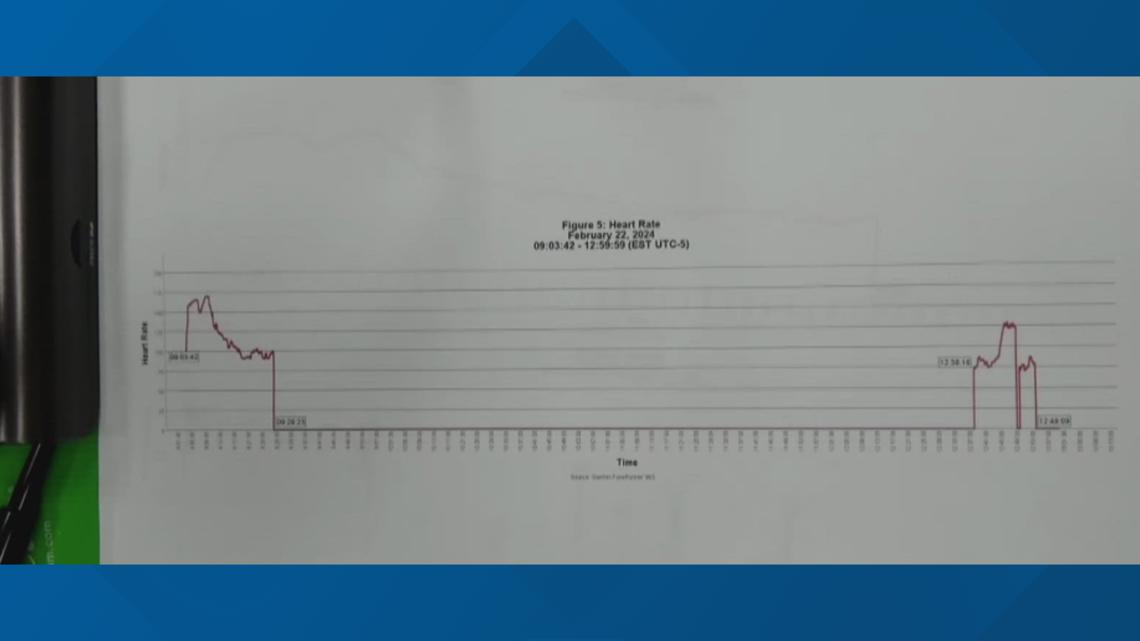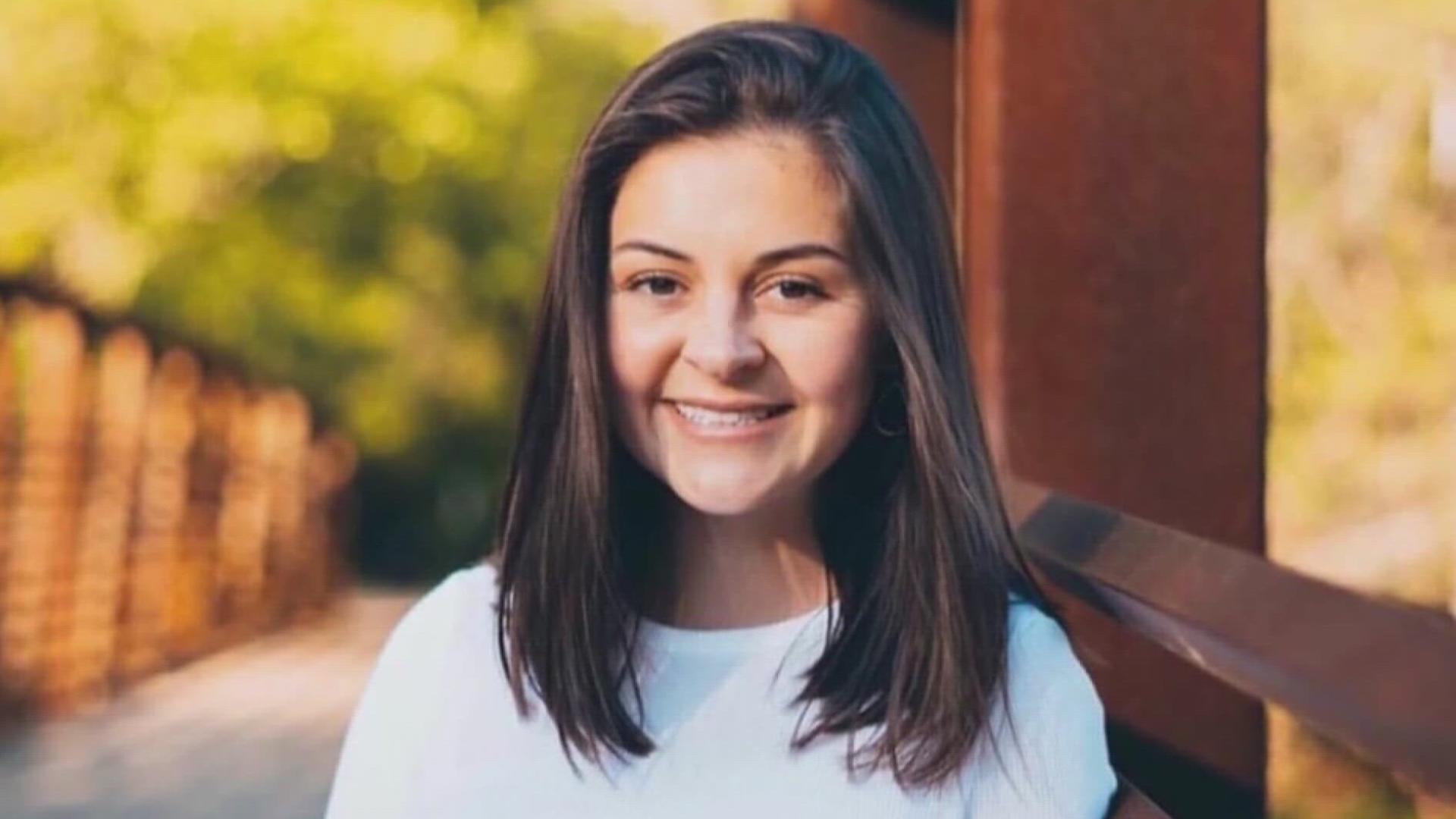ATHENS, Ga. — Experts testified on Tuesday that data from a watch and a cell phone could have put Laken Riley and her accused killer in the same spot on Feb. 22, 2024, the day Riley was found dead.
Wesley Durkit is an IT security analyst and officer with the University of Georgia Police Department. He serves as the lead digital forensics examiner for investigations.
"The Garmin, did it collect her heart rate?" asked the prosecution.
"It did," Durkit testified.
The prosecution continued its questioning: "Did it collect her speed?"
"It did," Durkit said, once again.
"And did it collect her location?" the prosecution asked.
"It did," he said.
Durkit noted throughout Riley's run, the watch continued tracking her.
"It tracked a data point every second that day," he explained. "So there were over 33,300 data points set and recorded and extracted."
Durkit went through a timeline of the end of Riley's run.
He testified that at 9:08 a.m., Riley was running about a 10-minute mile.
Durkit showed the data was tracking Riley to the second.
By 9:10:39 a.m., he said the SOS function began activating. Five seconds later, he said her pace came to a halt, clocking zero for the speed.
Six seconds after that, Durkit said she tried to call 911. Sixteen seconds later, at 9:11:06, the 911 call went out.
And at 9:28:23 a.m., Durkit said the data showed her heart rate went to zero.


The graph shown to the courtroom on Tuesday showed Riley's heart rate spiking again at 12:37 p.m. Durkit clarified that's when officers arrived and found Riley.
"That coincides with CPR and is tracked based on the body cam footage from our officer arriving on scene," he explained.
Tuesday afternoon, FBI Agent James Berni testified he used her watch data and a cell phone used by Jose Ibarra, the man accused of killing Riley, to look at their locations on the morning of Feb. 22, 2024.
Berni said hits between the phone and cell towers gave investigators an indication of where the phone was heading.
He noted the crime scene was in an area that did not have WiFi coverage, so while data from Riley's watch gives more of a precise location in the wooded area, he testified Ibarra's phone wasn't getting the pings they used to track him earlier in the day.
"Still no (cell phone) data during this time period, which allows us to say that device was most likely in the forested area somewhere along this park," Berni said.
He also testified, given the timing advanced data, the phone was "very close" to Riley's watch, which he said had "a lot of activity in this general area" from 9:15 a.m. to 9:26 a.m.
Berni testified that's when her heart rate drops, seconds before 9:27 a.m., shutting off the GPS location history.
Berni said Ibarra's phone didn't ping again until 9:30 a.m., after initially leaving the residence at 6:52 a.m.
He said between 9:30 a.m. and 9:39 a.m., the phone continued to move closer and closer to a tower, eventually picking up data hits at 9:40 a.m.
He also noted the device could have been by a dumpster around 9:45 a.m., but he said the phone did not report a location during that time. Berni testified the next ping was when the phone returned to the residence at 9:50 a.m.
The defense argued that Ibarra shares things with his brother, explaining the brothers shared things like an apartment, clothes and phones. On Friday, the first day of the trial, the defense stated while some of the evidence is gruesome, it is circumstantial at best.

